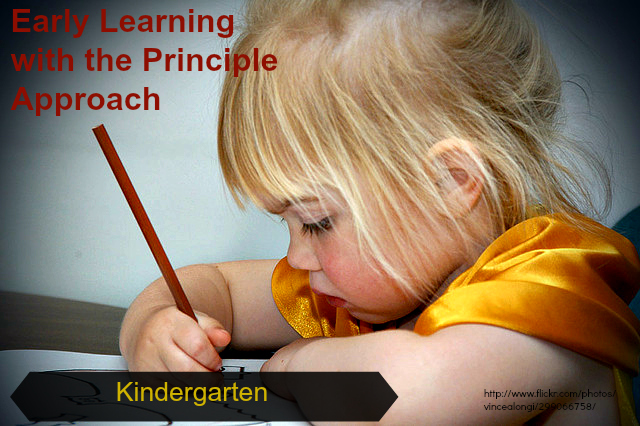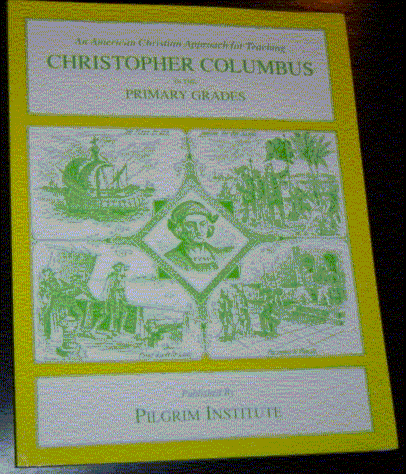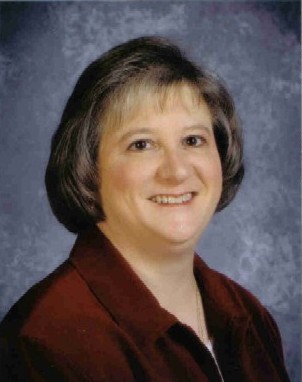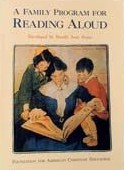Pilgrim Institute Store Kindergarten Resources

Recommended resources for early learning and Kindergarten from Pilgrim Institute.
An American Christian Approach for Teaching Christopher Columbus in the Primary Grades
By Jeanette S. Whittaker and Ruth J. Smith
This user friendly resource provides a complete year-long overview for kindergarten history, utilizing the engaging storytelling and beautifully illustrated d’Aulaire biographies. Detailed suggestions for the Columbus biography easily apply to subsequent suggested biographies, enabling the parent/teacher to have meaningful conversations and learning activities with their students.
The Guide introduces the significance of Christopher Columbus, the Providential timing of exploration, the joys of discovery, and many applications for daily living. The Guide highlights how God used an unusual event to put Columbus in exactly the right place; Columbus’s remarkable voyage when he was laughed at, ignored and all alone; and the undaunted dedication of a lifetime which enabled Columbus to overcome many obstacles.
-
Developing and expanding the Course Overview
-
Preparing lesson plans
-
Sample lesson plans
-
Leading ideas
-
Suggestions for student reasoning
-
Student activities-research, timelines, maps, charts
-
Teacher resources
-
126 pages, softcover
-
Suggested grade level K-3
Poetry – Inspiring and Challenging Themes for the Home or Classroom
Jeanette Whittaker
 By its very nature and construction, poetry lends itself to the heart and memory of the individual. Teaching students to analyze its form cultivates observation skills. Introducing the classic poets causes the student to reflect upon worthy ideals. Reading humorous poetry offers enjoyment and variety to everyday schedules. Memorizing poetry can be accomplished simply by following specific steps, and allows the students to recall highlights of this study long afterward.
By its very nature and construction, poetry lends itself to the heart and memory of the individual. Teaching students to analyze its form cultivates observation skills. Introducing the classic poets causes the student to reflect upon worthy ideals. Reading humorous poetry offers enjoyment and variety to everyday schedules. Memorizing poetry can be accomplished simply by following specific steps, and allows the students to recall highlights of this study long afterward.
Literature that Teaches Lessons in Life –
Aesop’s Fables for All Grades
Lynn Meier
 For over two thousand years, individuals throughout the world have chuckled at the humor of Aesop’s fables, sympathized with the honest truths presented, and been challenged by the application to their own character and actions. From The Tortoise and the Hare to The Frogs Desiring a King, these fables teach lessons of wisdom to readers of all ages through their delightful representations of men and animals. This session will address the teaching of fables from kindergarten through the junior high grades, and will provide practical ideas for a variety of methods to be used, suggested fables for the different grade levels, and specific examples of lessons.
For over two thousand years, individuals throughout the world have chuckled at the humor of Aesop’s fables, sympathized with the honest truths presented, and been challenged by the application to their own character and actions. From The Tortoise and the Hare to The Frogs Desiring a King, these fables teach lessons of wisdom to readers of all ages through their delightful representations of men and animals. This session will address the teaching of fables from kindergarten through the junior high grades, and will provide practical ideas for a variety of methods to be used, suggested fables for the different grade levels, and specific examples of lessons.
A Family Program for Reading Aloud
By Rosalie J. Slater
 “Reading Aloud discusses more than 200 literary classics – important works by great authors – literature that identifies Biblical ideals and will give your children a better understanding of our nation’s Christian history.” 128 pages, softcover. Illustrated. Index.
“Reading Aloud discusses more than 200 literary classics – important works by great authors – literature that identifies Biblical ideals and will give your children a better understanding of our nation’s Christian history.” 128 pages, softcover. Illustrated. Index.
American Language Series K Complete Package
 A complete beginning reading & language program
A complete beginning reading & language programWhether your young child is anxious for formal schooling or more interested in playing, you can provide an engaging learning experience that will lay the foundation for lifelong success.
My Kindergarten learning experience was priceless. I was blessed to be a student of an outstanding American Christian teacher. For decades, she inspired students with various learning styles and abilities to learn the sounds of letters, how sounds are combined into words, how words are combined as sentences, and how to embark on the lifelong journey of reading and learning. Those skills go hand in hand and are the foundation for independent thinking and self government, which are crucial in shaping the character to support liberty.
My teacher, Saundra Scovell Lamgo wrote her own lessons and curriculum. She was supported in this effort by a dedicated, diligent, knowledgeable researcher of language, Dr. Guyla Nelson. Together, they created a series of Kindergarten materials that have been used successfully for close to five decades. Originally published by Mile Hi Publishers as The Little Patriots Series, I am grateful that is currently being offered as The American Language Series.
In time, I was blessed to use this curriculum to teach children in a classroom as well as my own children at home. The American Language series provides a strong foundation in language skills for those who naturally and easily learn the concepts of written and spoken language as well as those who find it more difficult. Over and over again, it has been a rewarding and enjoyable experience.
Here’s why the American Language Series works so well:
- It presents the phonetic concepts which make up our language as a whole.
Children learn the sounds, how they are expressed orally and in writing, and how to combine them into words, sentences, songs, poems, stories, and much more.
- It promotes reading, spelling, comprehension and other language skills simultaneously.
The child quickly masters 2 sounds, and immediately learns how those sounds become words. That success becomes the foundation and pattern for continued learning.
- Students learn to reason and analyze.
Students succeed when they master the foundations and understand how the language parts work together.
The American Language Series presents a unique, proven blend of learning styles and concept development to reach every style of learner. Since not every child learns easily with one given method, the American Language Series incorporates a balance of the best methods. Mindless drill leads to boredom. Over-emphasizing reasoning and introducing multiple concepts can be frustrating. Doing language activities without appropriate phonetic concepts fails to produce mastery.
The American Language Series beautifully balances the best of various learning styles and blends them in such a way that students can easily succeed, no matter their natural learning style.
Beginning with the sounds of letters, the curriculum carefully and systematically identifies all the sounds of our American language and shows the interrelationship of its most basic parts. Phonics principles are taught incrementally, and students quickly master the building blocks of our language. They immediately identify sounds, learn to write, and quickly read words and sentences. The process is both meaningful and rewarding to the student.
Seeming complexities are presented in a simple, orderly fashion—easy to teach and comprehend. New words are introduced according to six basic phonics categories. Concepts are never mixed together initially; instead, they are mastered and then reviewed throughout the year.
Students see the big picture of our language and are equipped with all the necessary tools to unlock it for themselves. They master the simple rules of phonics and learn how to apply them.
Complete Teacher Materials are Provided
Suggested Daily Schedule
- Thorough phonics resource, organized and easy to use
- Audio introduction to the alphabet and phonetic sounds
- Songs
- Animal Alphabet Flash Cards
- Detailed daily lesson plans
- Six Kindergarten readers correlated to Kindergarten resources.
Phonics & Reading Workbook
Spelling, Writing & Vocabulary Workbook
- Handwriting Guide
Samples
American Language Series Lesson 1
American Language Series Lesson 2
AML – Math K Workbook Set – American Language Series

From the American Language Series publishers, a math program for the American Christian Educator.
Enable your early learner to understand the meaning of numbers, complete the operations of addition and subtraction using their counting skills, master math facts, use problem solving skills to solve word problems and have a solid foundation for understanding mathematical concepts from this point forward.
Along the way, you will discover how your child thinks in relation to math concepts. With this knowledge, you will be prepared to select teaching materials which best fit your student’s learning style.
Math K equips your student to think for himself — the first step toward exercising personal self-government. It demonstrates how mathematics originated with God and is a reflection of His character.
Additional Recommended Resources:

Teaching Biblical Ideas and Reasoning
Online Seminar
America’s historic method of Biblical reasoning seeks to restore independent learning, mastery of academic principles, and the ability to apply the teaching of Scripture to every aspect of learning and living. How may students of any age be trained in the capacity for Biblical reasoning? How is Scripture related to what we teach? How will this teaching influence the heart and life of the student? His home? His calling in life? His community? His nation? This workshop will inspire and equip the teacher with illustrations from a variety of academic subjects.
As a homeschool or Christian school educator, do you desire to develop Biblical reasoning in your students?
Additional resources and reading:
Pilgrim Institute has compiled resources available on Amazon here.
A basic overview of teaching Kindergarten can be found on our blog.
Teaching Tips for implementing the American Christian approach to education can be found here
A sample of a student’s notebook (non-Kindergarten) entry can be found here.